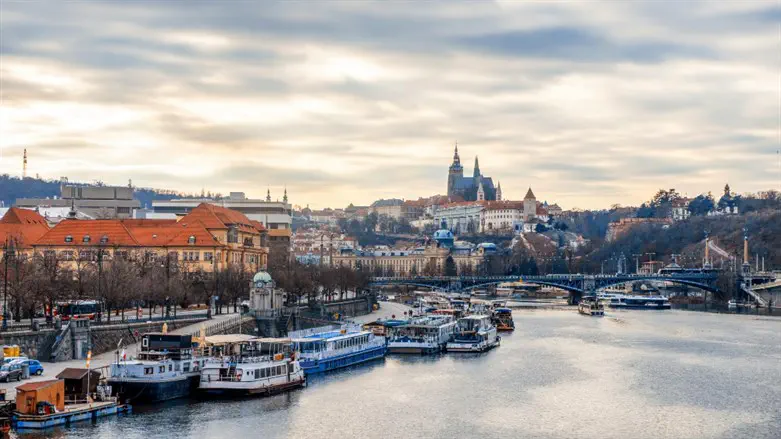
A new street in Prague has been named in honor of Sir Nicholas Winton, the British humanitarian who rescued hundreds of mostly Jewish children from the Nazis. The street, which runs past a small train station from where tens of thousands of Czechoslovak Jews were deported during the Holocaust, was inaugurated in a ceremony attended by four of the children Winton saved, now in their 80s and 90s.
The event coincided with the 85th anniversary of the last planned Kindertransport journey from Prague, which was halted by the outbreak of World War II.
Milena traveled by train across Nazi Germany, caring for her three-year-old sister, Eva. Along with dozens of other unaccompanied Jewish children, they crossed into Holland before boarding a boat to England. Eventually, Milena and Eva were reunited with their parents, who also managed to escape. The Fleischmanns were among the fortunate few; many of their friends and relatives were not as lucky.
“I think it’s so important because very soon, no eyewitnesses will be here anymore,” said Milena, now a youthful 94, in an interview with the BBC.
The same railway platform from which Milena departed was also the site where tens of thousands of Czechoslovak Jews were herded onto trains bound for the Theresienstadt ghetto. Most of them would later be murdered at Auschwitz.
The station, Praha Bubny, has been transformed into a memorial, and a much larger, modern station is being constructed nearby. A pedestrian and cyclist path running beneath the tracks will now be known as Nicholas Winton Street.
“People need to remember why that street is called Nicholas Winton Street,” said Milena. “Because there is a big generation—thanks to him—that is alive today.”
Michael Newman, head of the Association of Jewish Refugees (AJR), added, “In remembering Sir Nicholas, we also honor the parents who sent away their children to an uncertain future, as well as the foster families who gave sanctuary to the youngest victims of Nazi oppression.”
Sir Nicholas Winton rescued a total of 669 children who were destined for Nazi concentration camps.
Jan Cizinsky, mayor of Prague’s seventh district, emphasized the importance of individual action in today's world: “It’s really important that people don't wait for someone else to initiate an act of goodness, but that they themselves start doing it. When they take the first step, others will follow.”
In the final months before the outbreak of war, a speechless Winton was reunited with dozens of the children he had helped save. In subsequent interviews, he always emphasized that the operation was a team effort.
Apart from a month spent in Prague from Christmas 1938 to January 1939, most of Sir Nicholas Winton's work—pressuring politicians and diplomats, finding foster families, and sometimes creating fake documents—was carried out from the safety of his home in London. He was knighted in 2003 and passed away in 2015 at the age of 106.
Despite his achievements, Winton remained deeply affected by the children he was unable to save. Milena’s train was the eighth—and final—transport to leave occupied Prague. A ninth transport, the largest, carrying about 250 children, was scheduled to depart on September 1, 1939. However, war broke out that day, and the train never left the station. Tragically, all but a handful of those children are believed to have perished.
